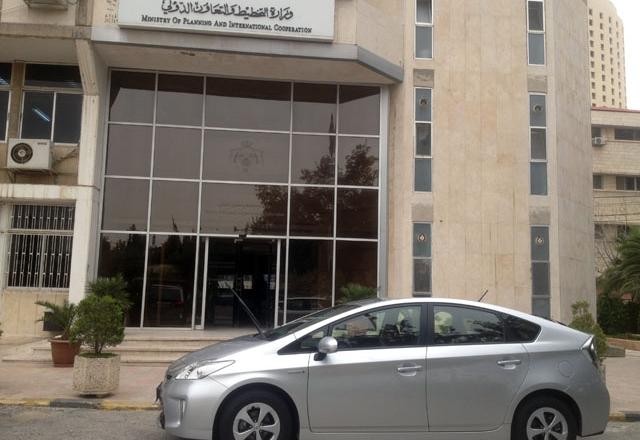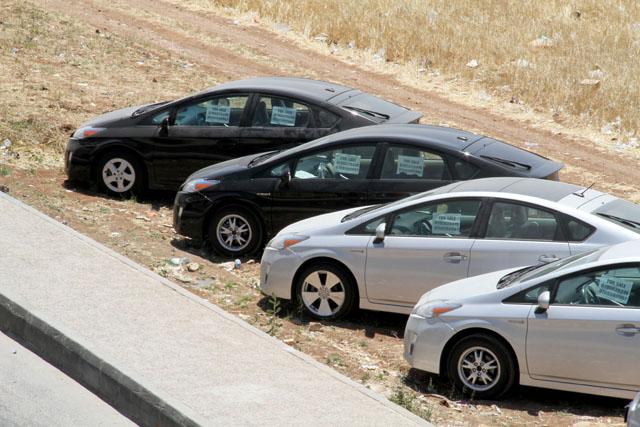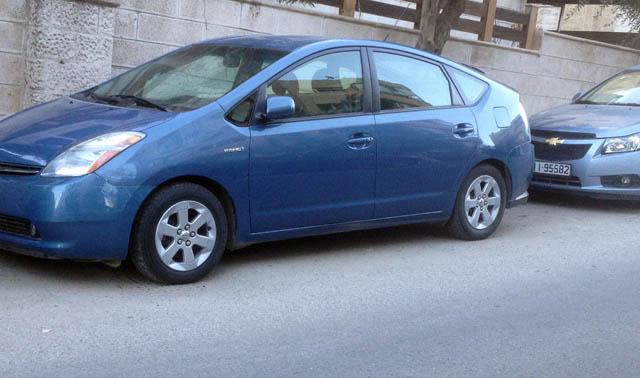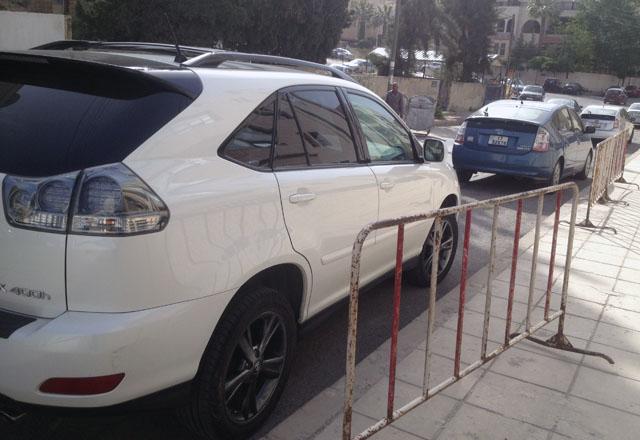You are here
‘Cabinet ministers expected to switch to hybrids to reduce fuel bill’
By Omar Obeidat - Mar 18,2014 - Last updated at Mar 18,2014

AMMAN –– More Cabinet ministers are expected to switch to hybrid cars in a bid to reduce the state's fuel bill, according to a government source.
Prime Minister Abdullah Ensour started to use a Toyota Prius hybrid around two weeks ago, and Planning Minister Ibrahim Saif has replaced a traditional Mercedes with a fuel-efficient Prius.
Earlier this year, Japan provided the government with 110 hybrid cars under a 300,000,000 yen grant (around $2,940,000).
The Japanese assistance was aimed at helping Jordan fight pollution and protect the environment, the Japanese embassy said at the time.
Saif said the new eco-friendly vehicles would be distributed to 16 ministries and government agencies, replacing public vehicles with large engines to reduce fuel expenses.
The move to adopt hybrid cars in the ministerial fleet was welcomed by an environmentalist, who said that officials should lead by example by using environment-friendly cars to curb pollution, cut fuel bills and boost market confidence in such vehicles.
“It is good to hear such news,” Ayoub Abu Deyyeh, president of the Energy Conservation and Environment Sustainability Society, told The Jordan Times.
However, distributing around 100 cars to government officials is not enough to reduce the country's energy bill, Aby Deyyeh noted, calling on decision makers to remove the special tax imposed on hybrids, which is 25 per cent of the value of the car, so that green vehicles can become affordable for the majority of Jordanians.
According to the environmentalist, the transport sector accounted for around 49 per cent of Jordan’s oil mix consumed in 2013.
In 2013, the Kingdom imported oil worth JD3.9 billion, according to official data.
“Hybrid cars should be tax free,” Abu Deyyeh said, adding that if authorities encourage people to switch to such technology, prices would go down as well as the cost of spare parts and maintenance.
Official figures indicate that imports of hybrids grew by nearly six-fold last year compared with 2012.
A total of 14,565 electric battery-powered cars were imported in 2013, compared to 2,598 in 2012, according to Jordan Customs Department figures.
Exempting hybrids from taxes would encourage motorists to swap their old cars with new fuel-efficient vehicles, Abu Deyyeh said, noting that nearly half the road accidents in Jordan are due to a lack of mechanical maintenance on old cars.
Pollution is another important issue the authorities should address, he said, citing official reports showing that pollution-related diseases cost the Kingdom around JD100 million a year.
Related Articles
Popularity of hybrid cars among Jordanian motorists is growing sharply with official data showing that demand for the fuel-efficient vehicles increased by nearly six-fold in 2013 and so far this year, with Toyota Prius stands as the top selling hybrid car.
There is a thriving “black market” for trading hybrid cars in Jordan, according to Nabil Rumman, president of the Jordan Free Zone Investors Association.
Authorities are considering the option of reducing tax rates imposed on hybrid cars imported for the domestic market to further boost demand for the environment-friendly vehicles, an official said on Monday.



















